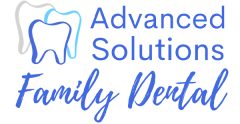Following the extraction of wisdom teeth, also known as third molars, during late adolescence or early adulthood, individuals face potential challenges such as Infection After Wisdom Teeth Removal. This arises due to the common occurrence of impacted growth, which can lead to discomfort, infection, or damage to neighboring teeth due to limited space in the mouth. Removal of these teeth becomes necessary to alleviate pain, prevent overcrowding, and mitigate risks such as cysts or gum disease.
After the surgical procedure, the utmost priority is to prevent infection. This can be achieved through diligent adherence to proper oral hygiene practices, strict adherence to prescribed medications, and following dietary restrictions as recommended. Efficient management of postoperative care is crucial for promoting optimal healing and minimizing the chances of complications, thereby fostering overall oral health and well-being.
Oral Hygiene Practices
1. Brushing Twice Daily: Regular brushing with fluoride toothpaste helps remove plaque and prevent tooth decay and gum disease. Thoroughly clean all tooth surfaces using a soft-bristled toothbrush and gentle, circular strokes.
2. Flossing Daily: Flossing removes food particles and plaque from between teeth and along the gumline, areas where toothbrushes can’t reach effectively. Proper flossing can help prevent cavities, gum disease, and foul breath.
3. Using Mouthwash: Antiseptic mouthwash can help kill bacteria and reduce plaque buildup, contributing to fresher breath and improved oral health. Choose a mouthwash with fluoride for added cavity protection.
4. Healthy Diet: Limit sugary and acidic foods and beverages, as they contribute to tooth decay. To promote dental health, eat a well-balanced diet of fruits and vegetables, lean meats, and whole grains.
5. Regular Dental Check-ups: Routine visits to the dentist for professional cleanings and examinations are crucial for detecting and preventing oral health issues early. Dental professionals can identify problems like cavities, gum disease, or signs of oral cancer and provide timely treatment and advice for maintaining optimal oral hygiene to avoid infection after wisdom teeth removal.
Dietary Restrictions
1. Avoid Hard Foods: Hard foods like nuts, seeds, and chips can be challenging to chew and may irritate the surgical site or dislodge blood clots, leading to complications. Stick to softer foods during the initial healing period.
2. Limit Spicy or Acidic Foods: Spicy and acidic foods can irritate the gums and surgical site, causing discomfort or delaying healing. Opt for mild, non-acidic options to prevent irritation and inflammation.
3. Say No to Crunchy or Sticky Foods: Crunchy or sticky foods like popcorn or chewy candies can get lodged in the extraction site or disrupt the healing process. Avoid these foods to reduce the risk of infection or complications.
4. Avoid Straws and Smoking: Sucking through a straw or smoking can create suction in the mouth, which may dislodge blood clots and delay healing. Avoiding these activities for a few days after surgery is essential to promote proper healing.
5. Stay Hydrated with Water: While certain foods are restricted, staying hydrated is crucial for overall healing. Drink plenty of water to prevent dehydration and aid recovery without stressing the surgical site.
Rest and Recovery
1. Follow Post-Surgery Instructions: Adhere to the instructions provided by your oral surgeon or dentist regarding rest, activity limitations, and medication usage. These guidelines are crucial for a smooth recovery and minimizing complications.
2. Take Adequate Rest: Allow yourself plenty of rest and avoid strenuous activities for the first few days after surgery. Resting helps your body conserve energy and focus on healing.
3. Apply Ice Packs: Use ice packs or cold compresses on the outside of your face near the surgical site to reduce swelling and discomfort. Apply ice for 20 minutes, with 20-minute breaks in between.
4. Avoid Disturbing the Surgical Site: Be cautious when speaking, eating, or brushing your teeth to avoid disturbing the surgical site and dislodging blood clots. Gentle care and avoiding unnecessary contact can promote faster healing.
5. Attend Follow-Up Appointments: Attend any scheduled follow-up appointments with your oral surgeon or dentist to track your healing progress and treat any issues or complications as soon as possible. These sessions are critical for a successful recovery and excellent oral health outcomes.
Other Preventative Measures
1. Keep the Mouth Clean: Maintaining good oral hygiene prevents infection after wisdom teeth removal. Rinse your mouth gently with salt water or an antimicrobial mouthwash as directed by your dentist to keep the surgical site clean and reduce bacteria.
2. Avoid Touching the Surgical Area: Do not touch the surgical area with your fingers or tongue, as this can introduce bacteria and increase the risk of infection. Instead, let the area heal undisturbed.
3. Use Prescribed Antibiotics: If your dentist prescribes antibiotics, take them as directed to prevent bacterial infections. Finish the entire course of antibiotics, even if you feel better, before completing the prescription.
4. Watch for Signs of Infection: Be vigilant for signs of infection, such as increased pain, swelling, redness, or discharge from the surgical site. Contact your dentist immediately if you experience any concerning symptoms.
5. Stay Hydrated and Eat Nutritious Foods: Drinking plenty of water and consuming nutritious foods support overall healing and immune function, which can help prevent infections and promote faster recovery. Avoid sweet or acidic foods, as these can irritate the surgery site.
Wrap Up!
Maintaining oral hygiene, avoiding contact with the surgical site, and following prescribed medications prevent infection after wisdom teeth removal. Promptly contact your dentist if you notice signs of infection like heightened pain, swelling, or discharge.
Remember, timely intervention can prevent complications and promote optimal healing. For comprehensive dental care and expert guidance on post-surgery recovery, trust Advanced Solutions Family Dental. Don’t hesitate to reach out to us for any concerns or inquiries. Your oral health is our priority. Book your appointment today for peace of mind and a healthy smile!

